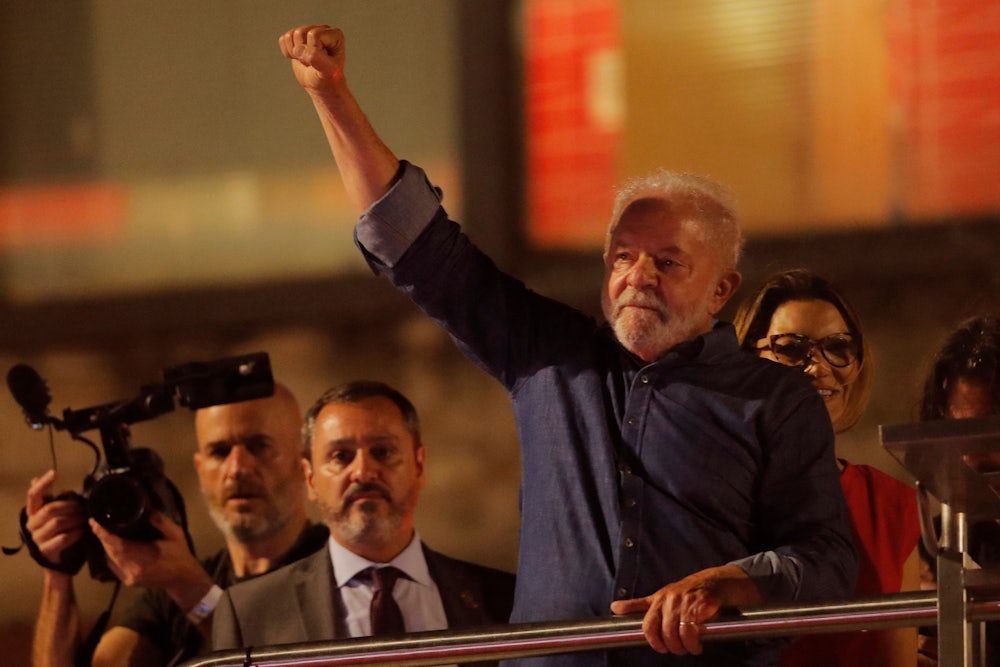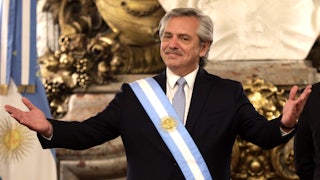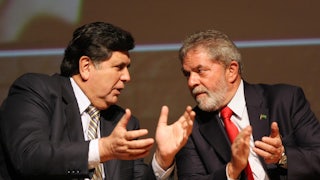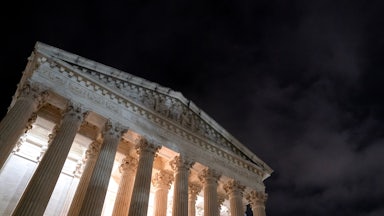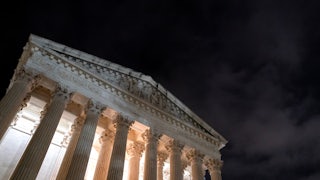In the end, Luiz Inácio Lula da Silva won his runoff against Jair Bolsonaro for the presidency of Brazil, becoming the first Brazilian politician to be democratically elected president three times, whilst condemning Bolsonaro to become the first sitting Brazilian president to be denied a second term (Brazil’s longest serving head of state, Getúlio Vargas, was only elected twice, though he also ruled Brazil as a dictator between 1930 and 1934, and between 1937 and 1945). It was, to be sure, a near-run thing. For after defying pollsters’ predictions and the expectations of many both in Brazil and internationally that Lula would get the 51 percent of the vote needed to be elected in the first round, Bolsonaro then gained ground in the last week before the runoff, holding Lula to 48.2 percent of the vote while rebounding to secure 43.2 percent for himself, a gap of about 6.1 million votes.
Bolsonaro’s surprisingly strong showing was chastening, not to say terrifying—not just to the left both in Brazil and abroad, but also to the Brazilian center and center right that had come to oppose Bolsonaro and dread what he might do were he to win a second term, so much so that the former four-time governor of São Paulo, Geraldo Alckmin of the center-right Social Democracy Party, who had been defeated by Lula in the 2006 election, was willing to sign on this time as Lula’s vice presidential running mate.
Nevertheless, it was widely assumed that Lula would gain votes in the second round thanks to the support that he received almost immediately after the first round from two longtime rivals: the third-place finisher, Simone Tebet of the centrist Democratic Movement Party, the MDB, who had gotten 4.16 percent of the vote, and the fourth-place finisher, Ciro Gomes of the center-left Democratic Labor Party, the PDT, a onetime minister in Lula’s government, who had received 3 percent. Their backing, observers believed, would lead many of the 8.1 million Brazilians who had voted for them to support Lula the second time around. It was also assumed that of the 38 million voters who had abstained or spoiled their ballots in the first round, more who participated in round two would vote for Lula than for Bolsonaro.
Instead, it was Bolsonaro who grew stronger, and Lula won 50.9 percent to 49.1 percent, and by only two million votes—that is to say, with less than half the number that had separated him from Bolsonaro in the first round. This is not to downplay Lula’s personal victory, for his truly phoenix-like return from what seemed like political death and personal disgrace. Having been president between 2003 and 2010, and then having remained the dominant figure in his Workers’ Party, the PT, during the presidency of his chosen successor and former chief of staff, Dilma Rousseff, before her constitutionally highly dubious impeachment and removal from office by the Brazilian Congress in 2017, Lula was himself given a nine-and-a-half-year prison sentence for corruption. He served almost two years before being freed provisionally by Brazil’s Supreme Court in 2019, and his conviction was nullified in 2021.
On the Brazilian left, what happened to Dilma is all but universally viewed as a slow motion right-wing coup. This may be overstating things in the sense that one can also view Dilma’s ouster as a power play pure and simple by her vice president, Michel Temer, to take her place, as he indeed did. Nevertheless, the destitution of Dilma and the jailing of Lula, who had planned to run for the presidency in 2018 but was barred from doing so, opened the way for Bolsonaro’s victory in the presidential elections that year. But today, it is Lula who has vanquished his enemies. The sole bitter note is that Sergio Moro, Bolsonaro’s former minister of justice and the man who, as a prosecutor, secured Lula’s conviction and was, in a sense, his Jean Valjean, just won election to the Brazilian Senate.
Unsurprisingly, the Latin American left is ecstatic. Argentina’s Alberto Fernández wrote on his Twitter feed: “Congratulations Lula! Your victory opens up a new era in the history of Latin America … a time of hope that starts right now.” Even before Lula had been declared the winner, Gustavo Petro, the former guerrilla and a committed leftist who won the presidency of Colombia last June, was tweeting “Viva Lula,” while his vice president, Francia Márquez, tweeted that Colombia and Brazil under Lula’s leadership would combine to “restore peace dignity and peace to Our America [a catchphrase of the contemporary Latin American left].” For his part, Cuba’s dictator Miguel Díaz-Canel wrote, “Cuba congratulates you, dear comrade … Lula returns, the Labor Party of Brazil returns, social justice will return.” He promised Lula that his government could “always count on Cuba.” And not to be outdone, the president of Mexico, Andrés Manuel López Obrador, declared that with the return of Lula to office, there would be “equality and humanism” in Brazil.
They are entitled to their moment of relieved excitement. But the idea that Lula’s victory is ideologically akin to that of Petro’s or that, as Ricardo Monreal, the majority leader of the Mexican Senate, put it excitedly in a tweet, Lula will “direct his country [back] towards the left,” is entirely far-fetched. For in reality, there are very few signs that we will see a return of leftist dominance to Brazilian politics. During the campaign, Lula emphasized over and over again that his government would not just be a government of the PT.
And for him to succeed, Lula will have to make sure this really will be the case. Lula’s own popularity—that is, the establishment, coalition-building Lula of today, not the left-wing firebrand he once was and the Latin American left hopes he still is—is quite high across a wide swathe of Brazilian opinion. But outside of its strongholds in the states of the poor northeast of Brazil, the PT is extremely unpopular, even among many who voted for Lula. They may view his prosecution by Sergio Moro as persecution and his imprisonment as a rank injustice purely motivated by the Bolsonarist right’s desire to extinguish his political career, but they also firmly believe that the PT itself was extremely corrupt under Lula and Dilma and remains so today.
However important his victory is, Lula is scarcely coming into office with a resounding mandate from the Brazilian people, nor can one legitimately speak of Bolsonarism being defeated even if Bolsonaro himself lost. The right scored massive gains in the ideologically fragmented Brazilian Congress, with Bolsonaro’s right-wing Liberal Party now the largest bloc with 99 seats. Lula will simply not be able to get legislation passed without the support of at least a part of the Brazilian right. In the Senate, where a third of the seats were in play, Bolsonaro’s bloc is also the largest party. And in the gubernatorial races, Bolsonaro-supported candidates won in 14 of Brazil’s 27 states, while center-right (but not necessarily Bolsonarist) candidates won in four others, including in Lula’s home state of Pernambuco, leaving the center and center left with only nine governorships.
A Bolsonaro supporter even won the governor’s race in the critical swing state of Minas Gerais, even though it voted for Lula for president. In short, the right won the Congress and the governorships, while Lula, not the left, won the presidency. In the words of Benjamin Fogel, a brilliant analyst of Brazilian politics whose bona fides are unimpeachable both as a fierce opponent of Bolsonaro and as a supporter of Lula (they are not the same thing by any means), “Nobody else but [Lula], the greatest Brazilian political mind of all time could have beaten Bolsonaro in this election, and even then, it is too close for comfort.” And, he added, “That’s truly terrifying.”
Lula’s challenges in office will be daunting. He will be hemmed in on all sides: a business establishment that will demand balanced budgets while the popular movements of the left and the unions that are his base (gig economy workers in Brazil tend toward Bolsonaro) will expect enormous increases in social spending. And while there is a good deal a Brazilian president can do unilaterally, and Lula can certainly reverse Bolsonaro’s determination to shrink the role of the state, budgets must be passed by Congress. The one piece of really good news, not just for Brazil but for the planet, is that restoring protections to the Amazon is something that can largely be done by decree, and these are moves Lula will unquestionably make.
And the conditions in Brazil Lula will preside over are very different from those that obtained when he left office in 2010. For one thing, the commodity boom that allowed him to pay for massive increases in social spending may not be over, but it has very different characteristics in an era of high inflation, low growth, and of course all the knock-on effects of the war in Ukraine. And Brazil has been changed forever by the rise of the evangelicals who are Bolsonaro’s and Bolsonarism’s most ardent and loyal supporters. There were approximately 20 million evangelicals when Lula first took office in 2003. By the time Dilma was impeached, they were said to number about 60 million. Today, only five years later, there are between 65 and 70 million evangelicals in Brazil, a little under a third of its total population.
To say they will be restive under Lula’s government would be to wildly understate the case. It is also worth noting that while recent elections in Latin America indeed have brought the left to power in the continent’s five most important economies (though to claim that Boric in Chile and Petro in Colombia, let alone Maduro in Venezuela, belong to the same political family would be absurd), this has not only been the result of an ideological shift. As the Brazilian political scientist Oliver Stuenkel has pointed out, “Brazil’s presidential elections mark the 15th straight opposition victory in Latin America. Over the past [few] years, not a single democratic leader has managed to get reelected or pick his or her successor.” And, he notes, “Brazil is angrier, more divided, and the geopolitical context far worse” than it was the last time Lula held office.
Brazilians celebrating Lula’s election in the streets of São Paulo can hardly be blamed for doing so. A second Bolsonaro term really did pose a threat to Brazilian democracy, which was why many on the center right supported Lula. But once the euphoria is passed, one fears they will find that in the coming years in Brazil, there will not be very much cause for celebration.
